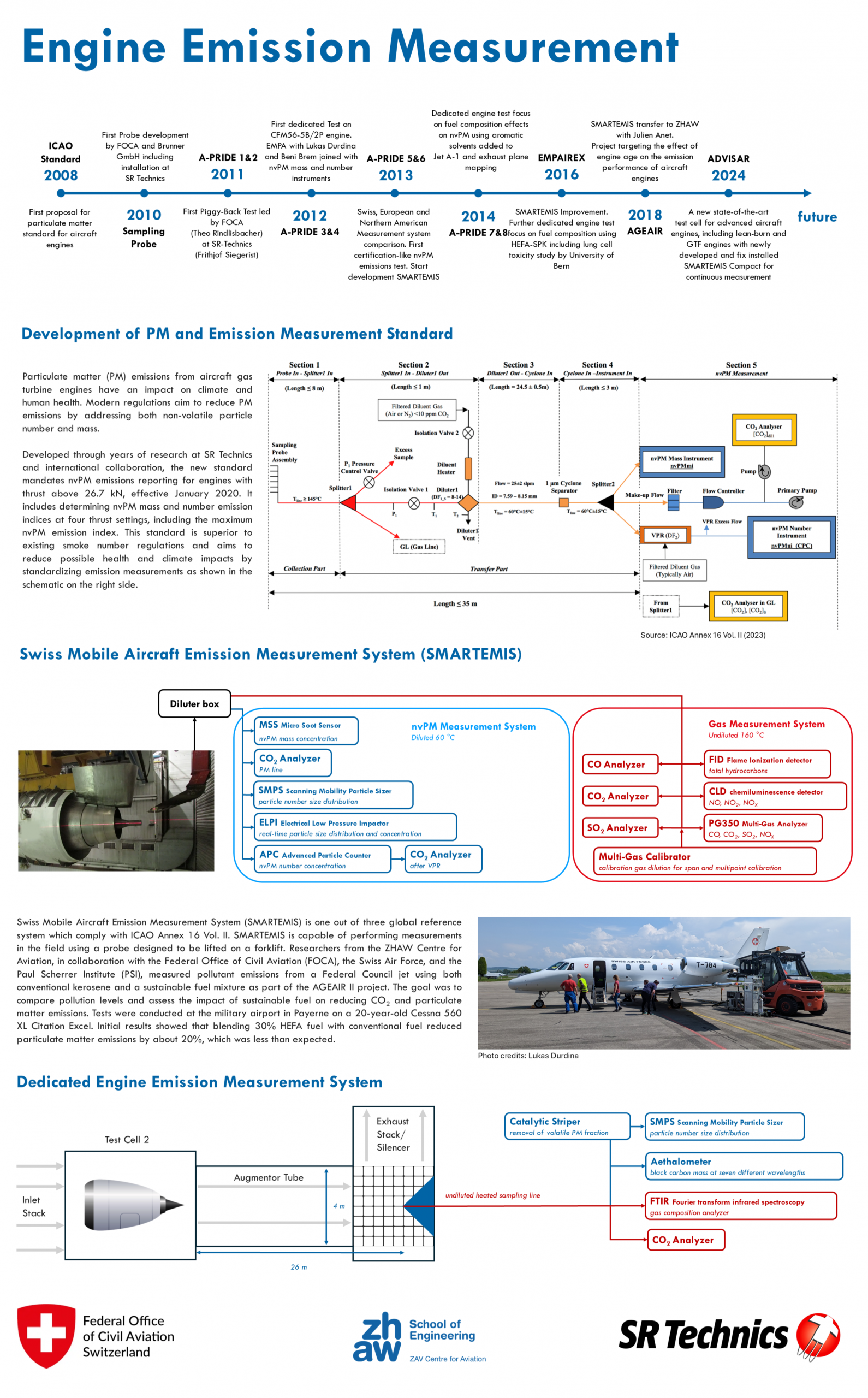On April 2, the Swiss Power-to-X Innovation Network SPIN celebrated a very special anniversary at its General Assembly: 100 years of Fischer-Tropsch synthesis. In 1925, chemists Franz Fischer and Hans Tropsch developed a process for converting carbon monoxide and hydrogen (synthesis gas) into long-chain hydrocarbons – an important step that today plays a central role in the production of sustainable aviation fuels (SAF). SPIN’s mission is to promote collaboration and innovation across sectors to establish and accelerate Power-to-X technologies as essential solutions for achieving climate-neutral, renewable energy systems and net-zero emissions by 2050. The general assembly brought together representatives from industry, politics and science to discuss Power-to-X related challenges.

The event took place at SR Technics at Zurich Airport and offered the METENVIA research group the opportunity to present their emission measurements at SR Technics’ two test cells. In our presentation, we highlighted the unique research opportunities resulting from the successful partnership between ZHAW and SR Technics. We also presented the development of emissions research in the test cell, ranging from the first sampling probe (2010) to current research projects (ADVISAR, 2024). Guests were then invited to view the SMARTEMIS measurement system in its new location, where Mauro Alig introduced the system, explained its connection to the test cells, and outlined the challenges of field measurements with SMARTEMIS. Matteo Stähelin also prepared an overview poster for the event, which will remain on display in the hallway for future visitors.

One focus of the SPIN event was particularly on the potential of new, alternative fuel components: In addition to reducing CO₂ emissions, so-called non-CO₂ emissions can also be influenced. These emissions not only have an impact on the climate, but can also affect local air quality at airports. Analyzing the influence of modern fuels on the composition of aircraft exhaust gases is therefore a key research topic – one that the METENVIA group will continue to focus on intensively in the future.